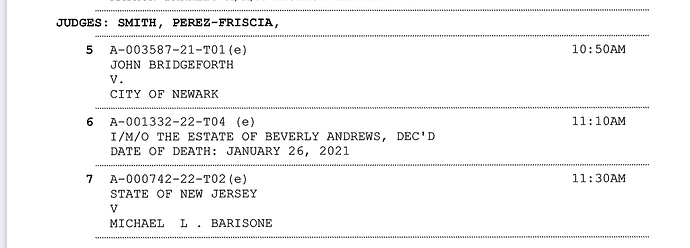Per the NJ Supreme Court’s decision in Krol, if MB has been released unconditionally, then Taylor’s order would not be reviewed by the Supreme Court. If there are conditions on his release, then the appeal will continue. From the Krol decision:
" Prior to considering the merits of this contention, we must first dispose of a procedural issue. On January 17, 1975, while the present matter was pending before this Court, the Camden County Court authorized the conditional release of defendant Krol, as permitted by our decision in State v. Carter, 64 N.J. 382 (1974). In granting the release, the court imposed a number of restrictive terms upon Krol: he must reside in a “Home for Sheltered Care” in close proximity to Ancora Psychiatric Hospital, continue psychiatric treatment as an outpatient, report regularly to a probation officer, and regularly inform the court of his condition; his freedom to travel is limited; and his release may be summarily revoked should he not comply with the terms of the conditional release order or should his condition change. Thus while the order released defendant from the physical custody of the State, it continues substantial restraints upon his liberty. Hence the principle, stated in Stizza v. Essex County Juvenile & Domestic Relations Court, 132 N.J.L. 406, 408 (E. & A. 1945), that commitment orders will not be reviewed after the person committed has been released and freed of all restraints upon his liberty and property does not govern this case. The present appeal is not rendered moot by the order for conditional release. Defendant still has a real and substantial interest in the validity of the original commitment order. Cf. State v. Parmigiani, 65 N.J. 154, 155 (1974); Bower v. State, 135 *246 N.J.L. 564, 568-69 (Sup. Ct. 1947); Sibron v. New York, 392 U.S. 40, 50-59, 88 S. Ct. 1889, 20 L. Ed. 2d 917 (1968)."



 Hopefully there will be an end to this for MB.
Hopefully there will be an end to this for MB. 